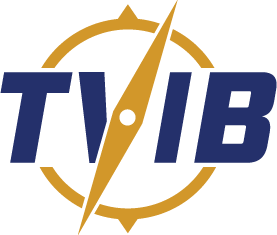Reposted from the Coast Guard Maritime Commons
POSTED BY LT AMY MIDGETT ON MARCH 9, 2020 • ( LEAVE A COMMENT )
Editor’s note: This blog post was updated March 10, 2020 at 8:04 a.m. to correct an editorial error.
A representative from the Office of Commercial Vessel Compliance joined several members of the professional maritime community Feb. 25, 2020, for an American Waterways Operators webinar, “Safety Know-How: Helping Your Crewmembers Embrace and Understand Your TSMS,” to offer best practices and lessons learned on ways to ensure towing vessel crews are familiar with their company’s Towing Vessel Safety Management System.
The panel comprised Cmdr. Jennifer Hnatow, chief of the Domestic Vessel and Offshore Compliance Division; Tava Foret with Towing Vessel Inspection Bureau; Paul Hite with American Bureau of Shipping; Matt Lagarde of Ingram Barge Company; and Ryan Maloney of Dann Ocean Towing.
Hnatow set the stage for the panel discussion by offering the latest statistics regarding Subchapter M and TSMS.
In 2019, marine inspectors detained 41 towing vessels for Code 30 deficiencies. Code 30 deficiencies reflect a vessel’s failure to implement a TSMS or a lack of familiarity with a TSMS. Of those, 32 percent used the TSMS option and 68 percent used the Coast Guard option, which may suggest to the Coast Guard that the TSMS option is having a positive impact on towing vessel safety. Vessels that chose the Coast Guard option are not required to implement a safety management system, and therefore may not be proactively managing safety as closely as those vessels that chose the TSMS option.
“More statistics are needed on this potential correlation between having a TSMS and fewer Code 30 deficiencies, but it is encouraging to see these initial results nonetheless,” Hnatow said.
Hnatow said the most common themes related to Code 30 deficiencies were a lack of adequate shore support through owner or managing operator or the crew’s failure to demonstrate an active TSMS training regimen.
“When Coast Guard marine inspectors go out for a scheduled inspection, or post marine-casualty, part of what their looking for is to ensure the vessel has the equipment required by Subchapter M but also that the crew understands how to use it,” Hnatow said. “Practice makes permanent. The more you practice correctly – whether you have the Coast Guard option or the TSMS option – it’s going to be automatic in the event of an emergency. That’s why our marine inspectors ask those questions.”
In a discussion about the recent CVC policy letter issued on the Coast Guard’s Subchapter M enforcement policy, Hnatow said the Coast Guard marine inspector determines a company’s fleet size information from the Certificate of Documentation, which is based on information provided by the owner/operator during the application process. If vessels in a company’s fleet are listed under different names or different mailing addresses, it will affect the phase in requirement percentage.
“If you operate vessels owned by a different entity but you consider them to be part of your fleet, reach out to the local OCMI so they can make sure the phase in percentage is correct,” Hnatow said.
Hnatow also offered several suggestions for promoting a holistic safety culture onboard a vessel, that is embraced from the most junior crewman to the executive staff:
- Making the TSMS available for the entire crew to read by posting it online or having a hard copy in a common area.
- Encourage ownership of the TSMS by assigning a crew member – even an unlicensed position – the responsibility for maintaining the hard copy of the TSMS.
- Company leadership should promote regular TSMS training as a special event and ensure the crew understands the value of regular training. Case studies can be used to provide context and illustration.
- Talk openly about results of audit and surveys. Talk to the whole crew on what they did well and where they need to improve.
“TSMS is about constantly improving the safety of the vessel,” Hnatow said. “That’s everyone’s responsibility.”
The full audio of the webinar is available on AWO’s website.
This blog is not a replacement or substitute for the formal posting of regulations and updates or existing processes for receiving formal feedback of the same. Links provided on this blog will direct the reader to official source documents, such as the Federal Register, Homeport and the Code of Federal Regulations. These documents remain the official source for regulatory information published by the Coast Guard.
